Not only is the 2020 stock bubble trading at the most overvalued levels in U.S. history, but stocks are also extremely overbought on relative strength (RSI) indications. Investors would be hard-pressed to ignore the number of S&P 500 constituents that are trading at RSI overbought levels above 70.
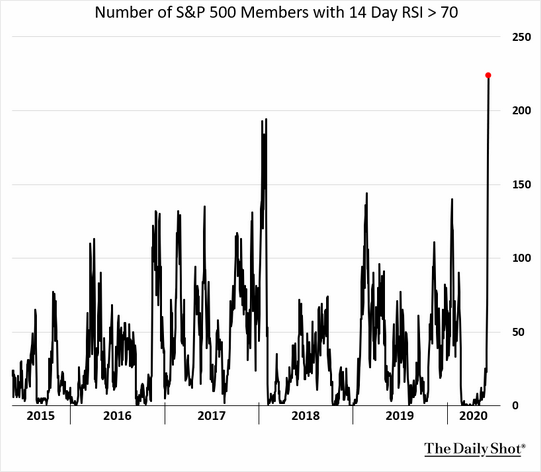
Atypical outcomes, however, appear to be the “new norm.” For instance, in the table below, we see the typical response to circumstances as well as the current response. The current response seems quite difficult to fathom.
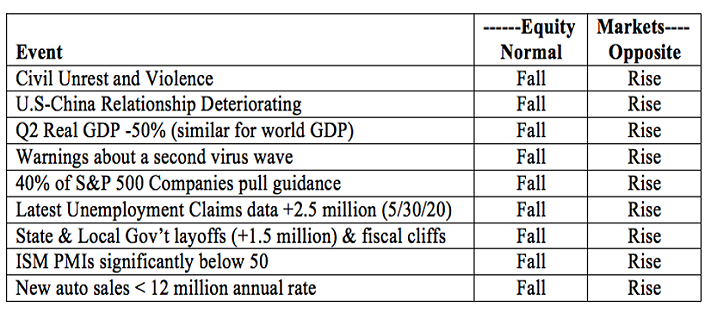
Of course, that’s what stock bubbles do. They defy rationality.
In 2000 as well as 2008, stocks fell 50% from top-to-bottom. In 2020, stocks briefly fell 33% from top-to-bottom, despite job losses that are much more severe. And no amount of number massaging will result in a quicker return to job normality this decade than during prior recessions.
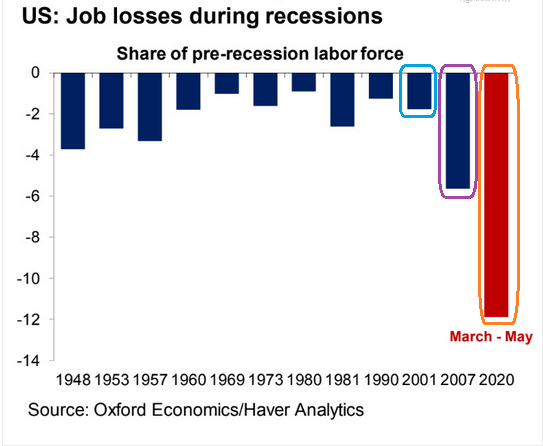
On top of all that, unemployment is dramatically under-reported. Yet the 2020 stock bubble hasn’t cared a bit.
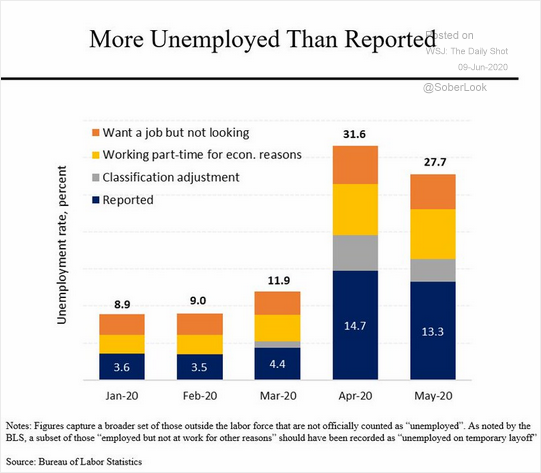
With income restraints on households due to job uncertainty, highly indebted corporations will continue to struggle garnering enough cash flow. One should expect the bankruptcy trend — one that wipes out stockholders — to continue throughout 2020.
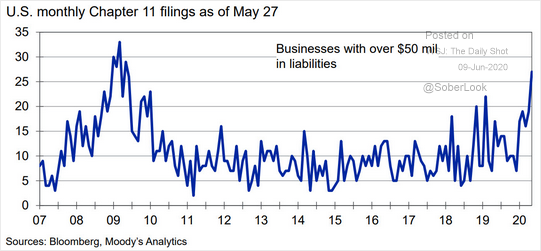
It follows that one should be concerned that ongoing bankruptcies will wreak havoc on financial markets as they have in previous credit cycles. Then again, the 2020 stock bubble has risen defiantly along Federal Reserve asset purchasing support for everything under the sun.
Maybe the Fed money printing to buy federal government bonds, state government bonds, mortgage bonds, investment grade corporate bonds and junk-rate corporate bonds can solve everything after all. Or maybe the fact that the Fed cannot print consumer willingness or ability to spend will eventually reveal that the emperor has no clothes, limited revenue and paltry profits.
Would you like to receive our weekly newsletter on the stock bubble? Click here.
